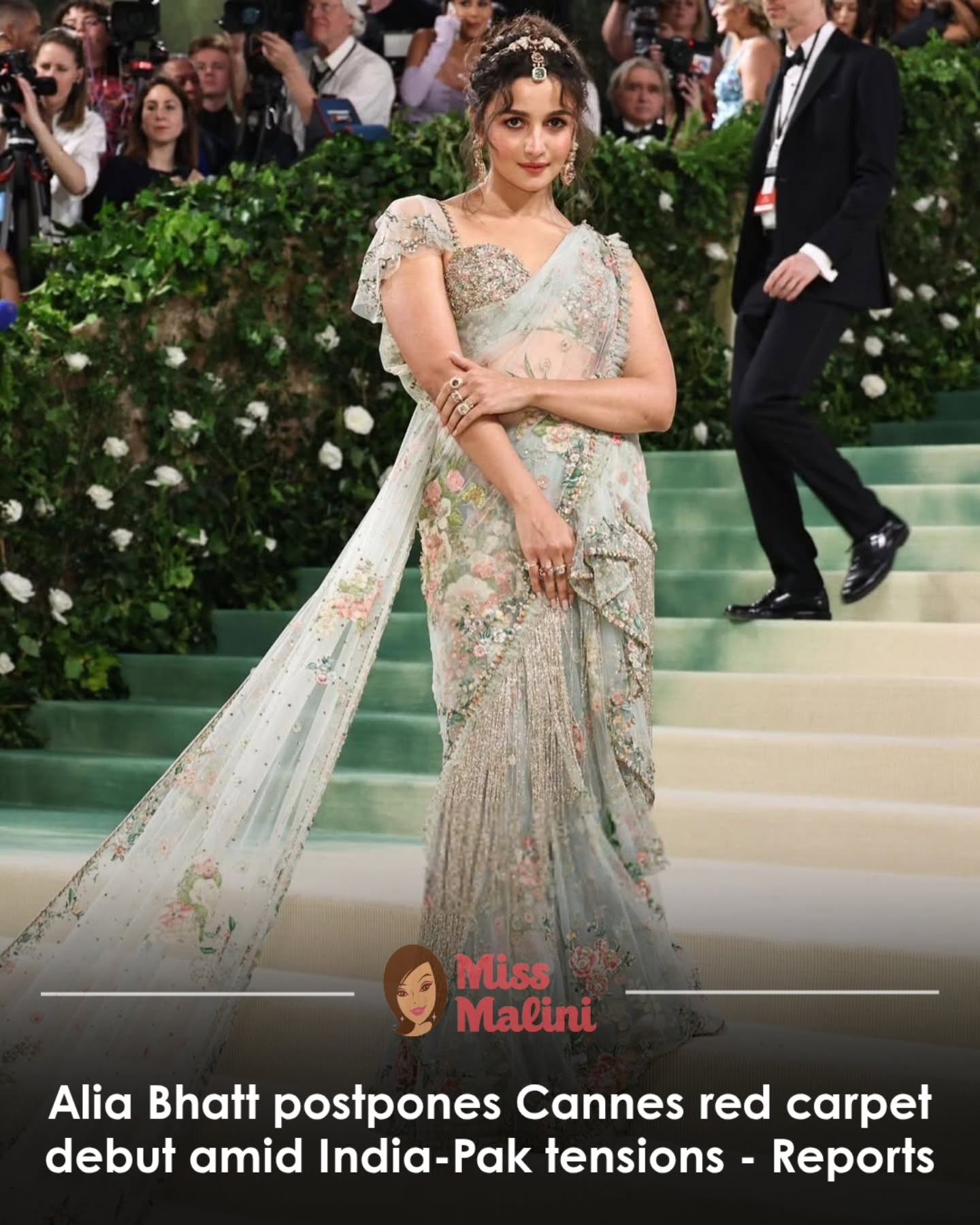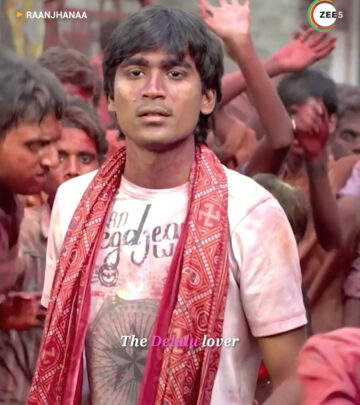Alia Bhatt Postpones Cannes Debut Amid India-Pakistan Tensions
Cannes debut postponed as escalating India-Pakistan tensions darken red carpet scenes now.

Image: Instagram
The buzz around the Cannes Film Festival has taken an unexpected turn following reports that Bollywood star Alia Bhatt has postponed her much-anticipated red carpet debut. The decision, reportedly influenced by escalating tensions between India and Pakistan, has set off a flurry of discussion among fans, industry insiders, and media critics alike.
Decision To Postpone
In a recent post that quickly caught the attention of millions on social media, popular entertainment journalist MissMalini confirmed that the delay was directly linked to the worsening geopolitical scenario in the region. According to the report, Alia Bhatt, who had been gearing up for her much-awaited appearance at Cannes, chose to hold off on the event as concerns mount over the strained relations between India and Pakistan.
The choice to postpone is reflective of a broader awareness among celebrities who are increasingly taking note of the political climates that can influence their international engagements. While the Cannes Film Festival has long been a platform for glamorous appearances and noteworthy cinematic announcements, it now finds itself at the crossroads of art and geopolitics.
Regional Tensions Impact
Industry experts point out that the decision is not merely a scheduling change but a testament to the profound effects that geopolitical issues can have on cultural events. In recent years, similar instances have seen public figures weigh the cost of international appearances against the backdrop of regional unrest. Alia’s move echoes a larger sentiment within the celebrity community—where personal safety, public sentiment, and the overarching political climate now factor heavily into planning major engagements.
Observers note that the red carpet, long synonymous with glitz and glamour, is now entwined with the responsibilities and sensitivities that come with being a public figure in turbulent times. The ongoing tensions between India and Pakistan, which have periodically escalated over various issues, have once again reared their head as the catalyst for this postponement. Many critics believe such decisions, though disappointing for fans eagerly awaiting the spectacle, are a realistic response to the complexities of today’s socio-political environment.
Reflections From The Past
Taking a moment to recall past Cannes moments, there have been instances where the festival’s atmosphere mirrored global tensions or reflected subtle political undercurrents. For instance, previous red carpet events have been celebrated for not just the fashion and glamour but as moments of cultural dialogue. Recently, Urvashi Rautela’s vibrant appearance on the Cannes red carpet had left an indelible mark, blending celebrity allure with an unmistakable sense of style. These moments, documented extensively on social media and reported by prominent platforms, serve as a reminder of how intertwined cinema, politics, and culture have become.
The postponement by Alia Bhatt also invites comparisons with similar measured responses by other fashion and film icons, who have in the past recalibrated their public appearances based on the prevailing political climate. This move is seen as a prudent step, ensuring that the focus of the event does not get overshadowed by political strife.
Industry And Fan Reactions
Reactions from the industry and fans have been mixed yet largely respectful of the decision. While many lament the loss of a potential iconic moment on the red carpet, numerous voices applaud Alia’s sensitivity to the current regional issues. Social media platforms are abuzz with comments that underscore the merging of art and politics, with discussions highlighting the growing importance for celebrities to maintain an awareness of global issues.
Cultural critics and political analysts alike have noted that the decision represents a subtle yet significant shift in how entertainment figures are engaging with current events. The red carpet, long a stage for celebratory appearances, is now also a stage where the impact of international relations becomes visible. The dialogue that has emerged from this postponement highlights the responsibility of celebrities to be mindful of the societal implications of their public appearances.
Amid all the speculation and analysis, there remains an invitation for further dialogue. With tensions still high, many are watching closely to see if this shift will have lasting effects on future engagements and if it will lead to a broader reevaluation of how global events are approached by the entertainment community.
As the festival continues and discussions evolve, one thing is clear: the mingling of cultural celebration and political reality is here to stay. Through her decision, Alia Bhatt has not only reaffirmed her commitment to the safety and sensitivity such times demand but has also set a precedent for others in the industry to reflect on the broader impacts of their public persona.
The postponement, while a setback for the planned red carpet glamour, opens up an important conversation about the interplay between celebrity activities and the pressing global issues that affect us all. In today’s world, art and politics are more intertwined than ever before, demanding a thoughtful approach from those in the limelight.
Read full bio of Glendon Moss



















